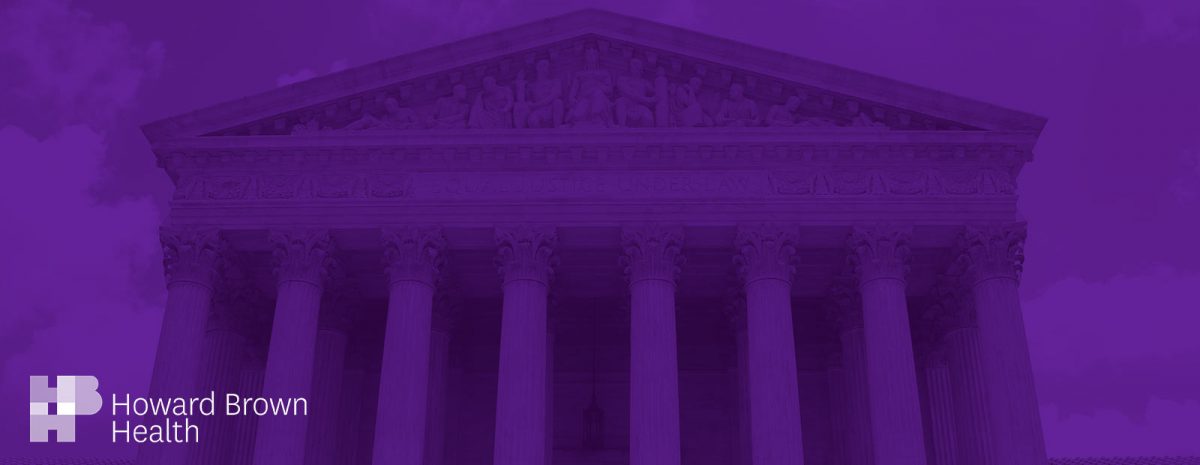The Supreme Court, Title VII, and Why Howard Brown Is Watching

This morning, Howard Brown Health and our community are watching what is happening in Washington, DC. Today, October 8, 2019, is the day when the Supreme Court of the United States (SCOTUS) is considering three cases: Altitude Express Inc. v. Zarda, Bostock v. Clayton County, and R.G. & G.R. Harris Funeral Homes v. EEOC. All three of these cases ask a question whose response will resonate throughout our community: Does Title VII of the Civil Rights Act of 1964 forbid discrimination against LGBTQ+ people?
Title VII of the Civil Rights Act of 1964 prohibits employment discrimination on the basis of sex. As rights movements have continued and built upon themselves, Title VII became an instrument with which LGBTQ+ advocates argued against discrimination against LGBTQ+ people. These advocates implemented this tool by pointing to one major root of LGBTQ+ discrimination – the fact that those discriminating believe that a person does not conform to their expectations of “personhood.” These expectations and stereotypes are simple: heteronormativity, misogyny, transphobia, and the rigid belief in the gender binary. These expectations do not exist in isolation. Compounded with pervasive racism and sexism that have been woven throughout the foundation of this country, they harm transgender, nonbinary, and gender nonconforming Black and indigenous people more than anyone.
In short, today’s hearing boils down to whether SCOTUS believes that LGBTQ+ should have the right to exist free from discrimination. In essence, the Supreme Court’s decision impacts LGBTQ+ people’s ability to provide for themselves, their families, and their loved ones.
And while this case relates directly to employment – unlike other current events that relate directly to healthcare – there are very tangible and significant links between employment and healthcare. One of the key social determinants of health is economic stability, which is still largely determined by employment. Many people rely on their employment for access to insurance. Most are able to live in successful school districts and afford nutritious food because of their jobs. With a steady income, many people would not rely on street-based economies that can lead to incarceration, separation of families, and further disenfranchisement. Additionally, the current understanding and reading of sex discrimination in Title VII in relation to sexual orientation and gender identity is mirrored in the interpretation of sex discrimination in Section 1557 of the Affordable Care Act. The attack on this logically expansive interpretation under Title VII is illustrative of a pattern that has been repeated during the course of the current federal administration.
Being able to rely on having sustained employment is integral to being able to access competent healthcare within our society. For LGBTQ+ people, Tuesday marks a day where the highest court in the land debates whether we should be able to pay our bills, afford our rent, and maintain our health and livelihoods.
Here at Howard Brown, our mission is driven by our dedication to healthcare equity for LGBTQ+ people – equity in access, competence, and compassion. As such, we are watching closely. We will not turn away as the Supreme Court considers removing existing protections, instead of upholding the protections that protect our most targeted communities. Any attack on reproductive rights, limitations on gender affirming coverage, or targeting of communities of color also threatens our patients and our community. Howard Brown stands by every person’s right to healthcare access and the freedom to be our most authentic selves in the workplace.